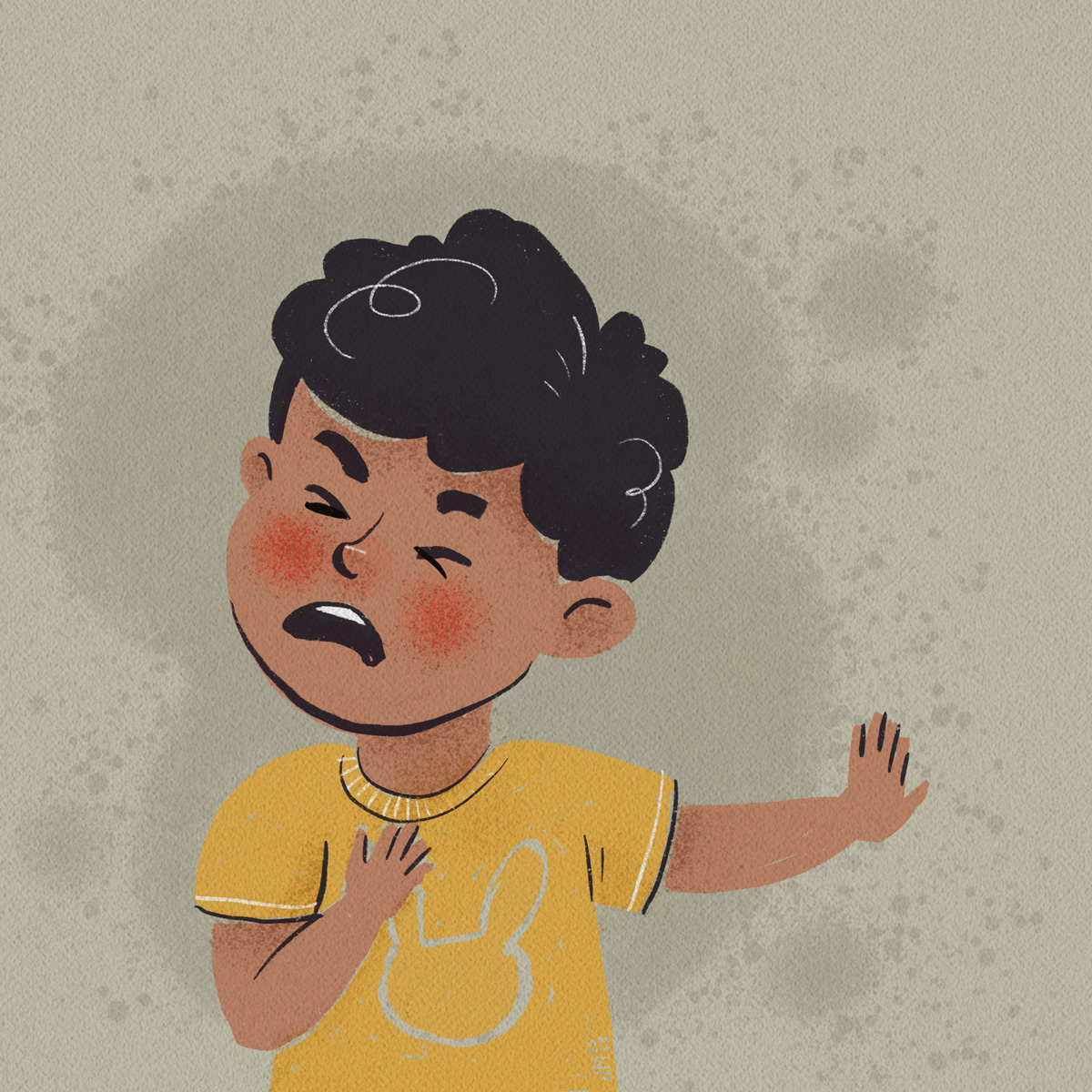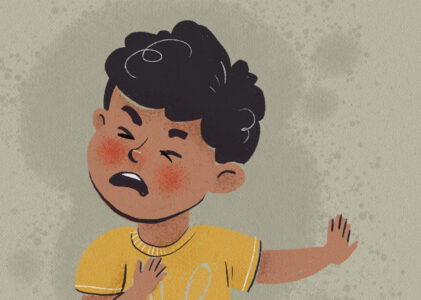For some children, demands create so much discomfort that compliance feels impossible, even for things they enjoy.
You’ve made your child’s favorite meal for dinner, but they won’t come eat. You tell them to put their shoes on so they can go to the park. No deal. Their teacher asks them to complete a fun assignment but they refuse.
More than just putting off chores or avoiding things they don’t like, your child shows an almost compulsive need to evade requests, routines and tasks expected of them.
What’s going on?

Illustration by Joseph Moore
What is PDA?
Pathological Demand Avoidance (PDA) was first identified by psychologist Elizabeth Newson in the 1980s as a pattern of behavior in which a person goes to extreme lengths to resist or avoid anything they perceive as a demand. Their avoidance might include doing things like making excuses, creating a distraction, escaping, withdrawing or having a meltdown.
While their behavior may baffle or infuriate you, it’s important to recognize that children with PDA resist demands not because they won’t comply but because they can’t. Anxiety and inflexibility create so much discomfort that they do whatever they can to avoid the demand.
PDA is seen most often in people diagnosed with autism spectrum disorder (ASD). However, people with other neurodevelopmental conditions may experience it as well. Psychologist Dr. Charles Ihrig, PhD, explains, “PDA is closely related to autism but presents its own set of characteristics and challenges.”
While PDA is not currently recognized as a stand-alone diagnosis, many clinicians acknowledge PDA as a beneficial framework to better understand and support people who display its central features.
Core Features of PDA
1. Anxiety-Driven Demand Avoidance
At the heart of PDA lies an intense anxiety response to demands. When faced with expectations, whether from others or even from themselves, your child might experience overwhelming feelings of stress, fear, and discomfort. This leads them to develop intricate strategies to avoid compliance. Dr. Ihrig explains, “This avoidance mechanism is not driven by defiance, but rather a genuine need to manage their anxiety.”
2. Social Communication Challenges
People with PDA often struggle with social interactions, but their difficulties might manifest differently from those with traditional ASD. Specifically, people with PDA may be more likely to mask their challenges to fit in, displaying “conventional” eye contact or conversation skills. Consequently, they may appear sociable on the surface but lack a deeper understanding of social conventions.
People with PDA may also use social strategies to evade demands. For example, your child might insist their legs don’t work or do things to distract you from the demand. Dr. Ihrig explains, “They can be highly skilled at impression management, adopting various personas or roles to manipulate social situations to their advantage.”
3. Resisting Routines and Transitions
People with PDA often have a strong aversion to rigid routines and transitions, which can trigger their anxiety. This resistance may lead to difficulties in adapting to changes in their environment or daily schedules.
4. Context Dependency
One of the defining features of PDA is context-dependent behavior. Dr. Ihrig elaborates, “Your child might complete a task one day but vehemently refuse it on another day, seemingly without reason.” This fluidity makes it hard for you to predict how your child will respond.
Psychological Underpinnings of PDA
To better understand why your child responds the way that they do, it’s useful to look at the psychological processes that contribute to PDA.
1. Anxiety and Control
PDA can be seen as an attempt to manage anxiety through control. By avoiding demands, your child attempts to reduce the overwhelming anxiety they experience when faced with expectations. This is a coping mechanism that allows them to maintain a sense of control over their environment and emotions.
2. Emotional Regulation Challenges
Difficulty regulating emotions is common among people with PDA. The extreme anxiety they feel when faced with demands can disrupt emotional regulation, leading to emotional reactions that seem way out of proportion to the demand or request. From your perspective, you’ve simply asked your child to put on their shoes. From their perspective, they’re in crisis.
3. Perception of Threat
If your child has PDA, they may interpret a request or expectation as a threat. In turn, this perception may activate your child’s “fight or flight” response. Consequently, they may engage in avoidance behaviors to protect themselves from the perceived threat.
Supporting your child with PDA
If your child has PDA, traditional behavior interventions may not work as well for them as for other children. In place of structure, routine, firm boundaries and other common strategies, it may be more effective to emphasize collaboration, flexibility and negotiation.
1. Flexibility
To manage your child’s anxiety, employ strategies that emphasize flexibility, negotiation, and agency. Pick your battles and minimize rules.
2. Communication
To reduce your child’s anxiety related to demands, phrase them indirectly. Provide choices, visual aids and time for processing. Doing tasks together helps.
3. Emotion Regulation
Speak to them in an even tone and stay calm. Recognize the challenges they may be experiencing. Support their emotional response and move on.
4. Collaboration
Collaborate and negotiate ahead of time to reduce challenges in the moment. Recognize the importance of your child’s sense of fairness and trust.
5. Adaptation
Try to keep it fun when you can by using humor, distraction, novelty and roleplay. Be responsive to the situation and have a Plan B.
Next Steps
If you have a child who may struggle with symptoms related to PDA and is on the Autism Spectrum, a more complex diagnostic work up, individual psychotherapy, or applied behavior analysis may help.
Call your doctor or contact Athena Care, for mental health care in Tennessee.
One of our Care Coordinators will help you get the care your child needs.

Rachel Swan, MS
Editor
Rachel has a Masters of Science in Clinical Psychology from Vanderbilt University, where she spent 16 years as a Research Analyst in the Psychology and Human Development Department.


